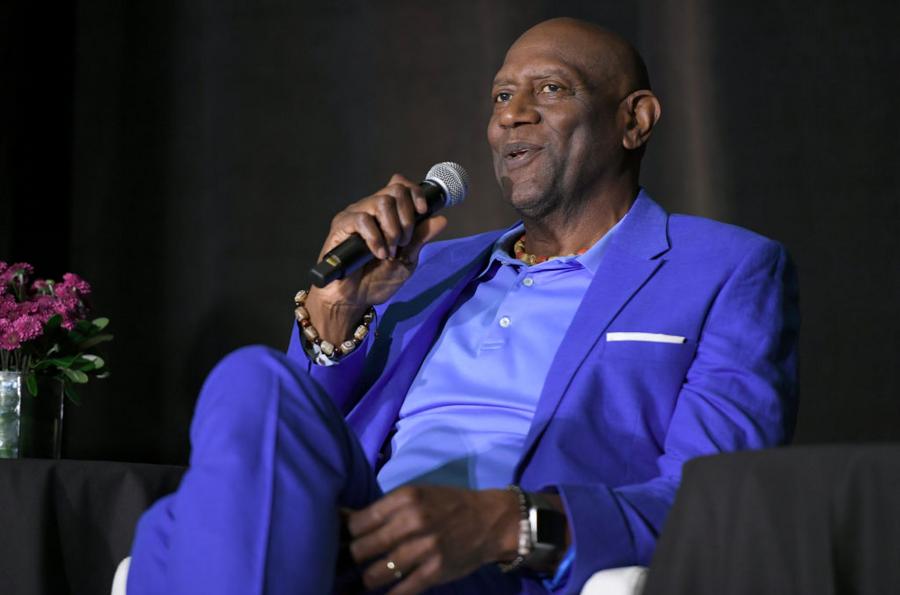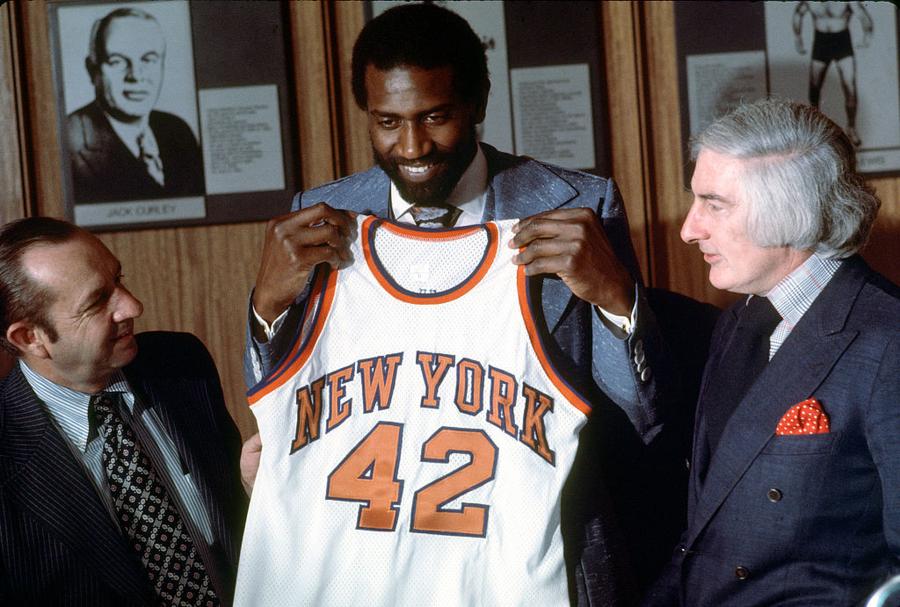In the early 1970s, a rising NBA star was offered an unusual endorsement deal from a scrappy sneaker startup in Oregon. The company wasn't well known, had just changed its name, and had no big athletes on its roster. But its founder had a vision, and he wanted this player to be the face of the brand. The offer? A choice between a lump sum of cash or a piece of the company.
The rising young player was Spencer Haywood, a 22-year-old basketball phenom who had already won Olympic gold, dominated college and pro basketball, and challenged the NBA's age limit in a landmark legal case that reshaped the league. At just 21 years old, Haywood had the world at his feet. He was bold, charismatic, and unafraid to make big moves. What came next should have set him up for life.
Instead, a single decision — made by someone else, without his knowledge for the dumbest possible reason — resulted in the most financially painful missed opportunity in sports history. How painful? Well, put it this way: Had the decision gone the other way, today Spencer would be receiving $103 million in dividends EVERY YEAR, and his net worth would make him not only the richest athlete of all time but roughly the 300th richest person in the world.

John McCoy/Getty Images
From NCAA Star to ABA Sensation
Spencer Haywood's rise to basketball stardom was meteoric. As a sophomore at the University of Detroit Mercy, he averaged 32.1 points and an NCAA-best 21.5 rebounds per game, putting up numbers that instantly turned heads across the basketball world. He left school early to join the ABA's Denver Rockets, where he posted a monstrous 30 points and 19.5 rebounds per game in his rookie season.
At the time, NBA rules barred players from joining the league until four years after high school graduation. Still just 21, Haywood signed with the Seattle SuperSonics and sued the NBA for the right to play. He won. His legal victory opened the door for future superstars like LeBron James, Kobe Bryant, and Kevin Garnett to enter the NBA straight out of high school or after just a year of college.
Over his NBA career, Haywood played for several prominent franchises: the Seattle SuperSonics, New York Knicks, New Orleans Jazz, Los Angeles Lakers, and Washington Bullets. He won a championship with the Lakers in 1980.

(Photo by Focus on Sport/Getty Images)
Nike Comes Calling
In 1971, Nike was still a complete unknown. Recently renamed from Blue Ribbon Sports, the company had no market share, no signature shoe, and no major athlete on its roster. But co-founder Phil Knight was looking to change that. He saw Haywood as the perfect ambassador—talented, bold, and charismatic.
Knight offered Haywood a deal: become the face of Nike in exchange for $100,000 in cash (equivalent to about $625,000 today) or 10% equity in the company.
Haywood was interested, but he was on the road. His agent had power of attorney, meaning he had full control to make financial decisions on Haywood's behalf. What happened next became one of the most painful business missteps in sports history.
A Billion-Dollar Blunder
Years later, Haywood revealed the full story:
"I went on the road and [my agent] had the power of attorney letter. He couldn't figure out how to get his 10%, so he sold my stock for the cash… He got greedy. He couldn't figure out how to get that percentage instead of asking me for $10,000 out of $100,000 and moving on."
In other words, because the agent wanted to take an easy $10k over learning how to take a cut of equity, Spencer lost out on $9 BILLION (based on Nike's current $86 billion market cap). And that doesn't include dividends! If someone owned 10% of Nike today, they would earn approximately $103 million PER YEAR in dividends. So it's safe to say that with dividends, Spencer easily lost out on more than $10 billion.
What Might Have Been
Had Haywood kept the 10% stake, he would have become a Nike billionaire long before Michael Jordan (current net worth $3.6 billion), without ever even having a signature shoe!
Instead, Haywood continued his successful basketball career:
- NBA Champion with the Los Angeles Lakers in 1980
- Basketball Hall of Fame inductee in 2015
- Career averages of 20.3 points and 10.3 rebounds across 844 games
- Olympic gold medalist in 1968
- Former husband of supermodel Iman
He also battled and overcame a serious addiction to cocaine, which had briefly derailed his playing days in the early '80s. He's been sober since the 1990s—a decision he calls the greatest of his life.
A Legacy Bigger Than Billions
Despite missing out on the fortune, Haywood never lost sight of his impact on the game. He estimates that his legal fight helped unlock more than $32 billion in career earnings for players who followed in his footsteps.
"So yeah, I lost out on a lot of money. But I've helped a whole lot of guys make even more."
Spencer Haywood helped shape the modern NBA. He just didn't get the billions that should have come with it.
/2018/11/Spencer-Haywood.jpg)
/2019/11/Magic-Johnson.jpg)
/2015/09/Moses-Malone.jpg)
/2020/12/GettyImages-93243663.jpg)
/2015/10/Adidas.jpg)
/2021/04/GettyImages-1304969139.jpg)
/2013/09/reggie.jpg)
/2023/10/Stefan-Quandt.png)
/2014/08/GettyImages-87126722.jpg)
:strip_exif()/2020/06/taylor.png)
/2012/07/Johanna-Quandt.png)
/2010/03/chip2.jpg)
/2020/07/tom-green.jpg)
/2010/11/Tyson-Beckford.jpg)
/2009/11/seal2.jpg)
/2019/11/Jerry-Jones-1.jpg)
/2021/08/Billy-Ocean.jpg)
/2012/01/peter-ostrum.jpg)
/2009/11/Brody-Jenner-1.jpg)
/2010/11/Cole-Hauser3.jpg)
/2012/10/LEON-SPINKS-1.jpg)
/2010/05/Rick-Hendrick.jpg)
/2021/04/Sade.jpg)